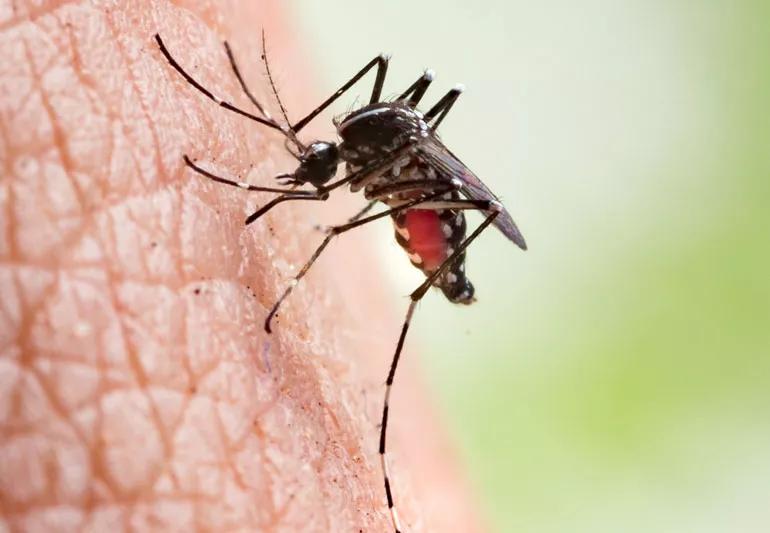Learn the proper care and when to seek help after you’ve scratched a bit too much

Image content: This image is available to view online.
View image online (https://assets.clevelandclinic.org/transform/c5c9307a-a4f6-432c-ab0b-01b7400b4abb/mosquitoBite-822664042-770x533-1_jpg)
Close-up shot of a mosquito drawing blood from the skin.
Stop scratching! That’s good advice if you have a mosquito bite … but sometimes it’s easier said than done. That bite itches, right? And it itches a lot.
Advertisement
Cleveland Clinic is a non-profit academic medical center. Advertising on our site helps support our mission. We do not endorse non-Cleveland Clinic products or services. Policy
Here’s why you need to leave it alone: That little bite can transform into a much larger problem if you continually claw at it. Family nurse practitioner Allison Folger, CNP, says infections can develop if you don’t leave the bite alone.
“Scratching the bite to the point of bleeding can open the door for a bacterial skin infection,” explains Folger. “This commonly occurs in children whose nails are understandably dirty from playing outside, though it also happens in adults.”
Here’s what to do if you (or someone you know) just couldn’t resist that urge to scratch.
So, you’re outside enjoying the twilight when you feel a familiar pinch on your arm. A quick glance down reveals the small, winged, blood-sucking culprit behind the pain. Yep … a mosquito.
Odds are, a hand smack quickly follows — but it’s too late. You’ve been bit.
Mosquitoes feed on blood using a long, needle-like mouthpart that pierces skin. As the insect sucks your blood, it secretes saliva that enters your bloodstream. That saliva might as well be called itch juice.
Your body registers the mosquito saliva as an allergen, notes Folger. In response, your immune system sends histamine to the bite spot to remove the allergen. (Basically, think of histamine as your body’s bouncer tossing out unruly visitors.)
Advertisement
But for as much good as the histamine does, it also causes the itching, redness and swelling that you see after a mosquito bite.
Blame for an infected mosquito bite doesn’t rest solely with the insect. Odds are you played a role in escalating the situation from a mild annoyance and irritation into something requiring extra attention.
The infection, called cellulitis, is from bacteria that enters the punctured skin from your hands. Warning signs include:
“If you or a child has these signs of infection, it is important to see your doctor,” Folger says.
One easy way to tell if the bite is spreading? Take a pen and draw an outline around the mosquito bite and then check on it later, suggests Folger. That’s a fool-proof, objective way to see if the redness is expanding.
If your doctor confirms the infection is cellulitis, you’ll probably be prescribed antibiotics to kill the bacteria. The most common bacteria causing cellulitis are strep (streptococcus) and staph (staphylococcus).
Welts from an infected mosquito bite can easily grow to the size of a ping pong ball or mandarin orange. If other symptoms aren’t escalating, Folger recommends the following steps to find some relief.
Your healthcare provider may also recommend using an oral antihistamine (such as Benadryl®), as they’re more effective at providing relief than topical creams.
The best way to avoid a mosquito bite infection (aside from not scratching)? Avoid the bite. To keep those pesky mosquitoes at bay, take these precautions.
Advertisement

Sign up for our Health Essentials emails for expert guidance on nutrition, fitness, sleep, skin care and more.
Learn more about our editorial process.
Advertisement
Keep pesky bugs at bay by covering your skin, avoiding perfumes and using insect repellant
Understand the risks and take precautions against infection
How to care for new ink — and what’s cause for concern as it heals
Bleeding is a risk and warrants taking care, but the reward of this lifesaving medication is great
Severe and debilitating headaches can affect the quality of your child’s life
Type 2 diabetes isn’t inevitable with these dietary changes
Applying a hot or cold compress can help with pain
Pump up your iron intake with foods like tuna, tofu and turkey